- Moscow concerts Moscow concerts Moscow concerts See all Moscow concerts ( Change location ) Today · Next 7 days · Next 30 days
- Most popular artists worldwide
- Trending artists worldwide
- Tourbox for artists
Search for events or artists
- Sign up Log in
- Get the app
- Moscow concerts
- Change location
- Popular Artists
- Live streams
- Deutsch Português
- Popular artists

Bronski Beat
- On tour: no
- Upcoming 2024 concerts: none
150,796 fans get concert alerts for this artist.
Join Songkick to track Bronski Beat and get concert alerts when they play near you.
Find your next concert
Join 150,796 fans getting concert alerts for this artist
Similar artists with upcoming concerts
Tours most with, past concerts.
Portsmouth Music Big Top
House of Blues - Sunset Strip
1227 Nightclub
View all past concerts
Live reviews
There’s certainly nothing especially original about the idea of a group from the eighties largely being in thrall to sounds from the synthpop and new wave genres, but there was a twist on the basic formula that pervaded the decade as far as Bronski Beat were concerned; all members of the band, including de facto frontman Steve Bronski, were openly gay, as was commonly reflected in their lyrics. Of course, this meant immediately that they had something of a captive audience right from the very get go, and certainly would have contributed to the success that they enjoyed over the course of a twelve-year career that saw its highest points come during the decade of their formation. After originating in London, in 1983, the band went on to enjoy huge success with ‘Smalltown Boy’ a year later, which became a gay anthem and went to number three on the UK singles charts. They toured extensively throughout the late eighties, playing a 1987 show at London’s Brixton Academy that saw them supported by dance legends New Order, before splitting officially in 1995; the use of ‘Smalltown Boy’ on a prominent Boots TV ad last Christmas, though, proves the ongoing nature of their legacy.
Report as inappropriate
Posters (3)
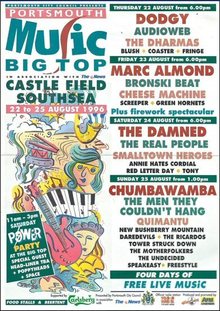
Find out more about Bronski Beat tour dates & tickets 2024-2025
Want to see Bronski Beat in concert? Find information on all of Bronski Beat’s upcoming concerts, tour dates and ticket information for 2024-2025.
Unfortunately there are no concert dates for Bronski Beat scheduled in 2024.
Songkick is the first to know of new tour announcements and concert information, so if your favorite artists are not currently on tour, join Songkick to track Bronski Beat and get concert alerts when they play near you, like 150796 other Bronski Beat fans.
Last concert:
Popularity ranking:
- Frightened Rabbit (2825)
- Bronski Beat (2826)
- Gareth Emery (2827)
Concerts played in 2024:
Touring history
Most played:
- Rotterdam (2)
- Portsmouth (1)
- Los Angeles (LA) (1)
- St Louis (1)
Appears most with:
- Opposition (UK) (2)
- Flesh for Lulu (2)
- Shriekback (2)
- Palais Schaumburg (2)
Distance travelled:
Similar artists
- Most popular charts
- Campaigns for promoters
- API information
- Brand guidelines
- Community guidelines
- Terms of use
- Privacy policy
- Cookies settings
- Cookies policy
Get your tour dates seen everywhere.
- But we really hope you love us.

How Bronski Beat’s ‘Smalltown Boy’ became an enduring anthem of queer liberation
Released on 25th May 1984, ‘Smalltown Boy’ launched the gay synth-pop band Bronski Beat into the charts and onto dancefloors with its glorious synths, hi-NRG production and Jimmy Somerville’s soaring falsetto, which sang a story of rejection, pain and escape. Here, with the help of musicians, its iconic video's director and others, Bailey Slater explores how, four decades on, it remains an unflinching anthem of queer liberation
When you think of the voices that defined a generation, the 1980s had plenty of options. From Sade and Sinead O’Connor to George Michael and Whitney Houston, these singers seemed to confirm that the divine was not only real, but living amongst us. Among those stars, however, you’ll find a most unlikely contender in the form of a young, scarlet-haired Glaswegian, whose angelic falsetto became a rallying cry of unflinching queerness that never once wavered in its pursuit of liberation.
That voice, of course, belongs to Jimmy Somerville, the cherubic face of Bronski Beat, a trio of gay melody makers completed by the late Steve Bronski and Larry Steinbachek. These unassuming figures introduced themselves to the masses on 25th May 1984 with the release of their debut single, ‘Smalltown Boy’, and in turn, set the stage for generations of LGBTQ+ artists to march proudly behind them. At the heart of this synth-pop psalm is Somerville, whose vocals soar high above the instantly recognisable melodies, melancholic hi-NRG bassline and pulsing drums to tell a story of familial rejection, pain and escape. But how exactly did this timeless anthem of otherness in suburbia become one of the decade’s most enduringly sombre floor fillers?
“We absolutely knew that this was potentially a life-changing record for many people,” recalls Colin Bell, the openly gay former Managing Director of London Recordings, who took a punt on releasing the song. “It’s probably the record I am most proud of because it actually was risky. Turning it into a hit wasn’t as straightforward as you think.”
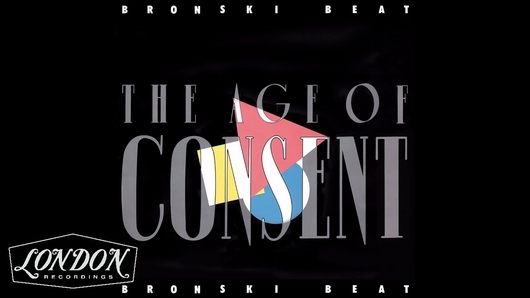
Bell first encountered the boys at a meeting for the Greater London Council in 1983, then under the steerage of Ken Livingstone, where funds were being allocated for a first-of-its-kind lesbian and gay arts festival, September In The Pink. The fledgling band attended after reading about it in the Capital Gay newspaper; they played their demo tape to the committee, and were subsequently invited to perform at the event in London’s premier gay nightclub, Heaven.
The group had come together just a few months before , through a series of fortuitous chance encounters and budding friendships. Somerville had met Steinbachek through the artist Jill Whisson, whose work would later appear on the sleeves of ‘Smalltown Boy’ and their cover of Donna Summer’s disco anthem, ‘I Feel Love’. It was shortly after he had been evicted from his West End squat, where he’d lived with the film director Connie Giannaris; they both ended up moving into Whisson and Steinbachek’s Brixton abode. Steinbachek, meanwhile, had recently been introduced by an ex-boyfriend to the eponymous Bronski, another Glasgow transplant; the pair shacked up soon after.
The track they played at that meeting was a version of their first-ever collaboration, ‘Screaming’, which Somerville had initially recorded solo for the soundtrack of a film project he was involved in called Framed Youth: Revenge of the Teenage Perverts . When Steinbachek and Bronski, who were already dabbling with synthesisers in the former’s home studio, heard his vocal take, backed only by a drum machine, they were stunned by his singing, and quickly added a keyboard part using a Tascam portastudio.
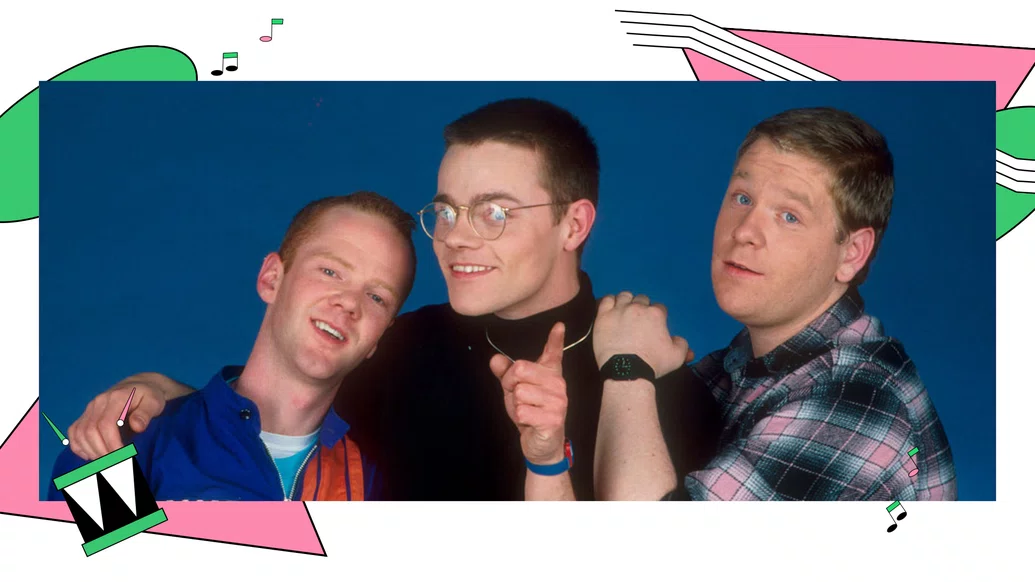
There were never any official plans to form a band per se, but from there, things started happening: they fashioned their name in a punny tribute to Roxy Music, a tongue-in-cheek suggestion by Bronski, and began fashioning themselves into a musical tour-de-force.
The group’s influences came from both sides of the Atlantic. Somerville had been obsessed by Giorgio Moroder’s hi-NRG synth sounds from the first time he heard Donna Summer as a teenager, later dancing to them and gay anthems by Village People in Glasgow club Shuffles . The UK capital around this time was a hotbed of subcultures, emanating from artists’ squats across the city and into the hedonistic clubs and fashion scenes populated by Blitz Kids, Wag Club-goers and future patrons of Leigh Bowery’s Taboo. The AIDS epidemic was yet to decimate these spaces, despite having claimed the life of DJ Terry Higgins a year earlier, and the city's LGBTQIA+ community was making great strides in its bid for wider acceptance.
Bronski Beat were regulars in the King’s Cross venue, The Bell, a crucial hub for the London queer community that hosted alternative music nights. It was there that they had their first gig, playing the six songs they had, and obliging an encore to play them all again.
It was during a gig at Marylebone’s Cockpit Theatre that Bell heard ‘Smalltown Boy’ for the first time, alongside a London Records A&R. He knew instantly that he had to sign it. After beating out Virgin and RCA for the deal, his next order of business was to bring in producer Mike Thorne, who was still riding high off the era-defining success of Soft Cell’s ‘Tainted Love’, the UK’s biggest-selling single of 1981. Thorne was an early adopter of the synth, and saw Bronski Beat’s vision clearly from the get-go, melding their overt queer politics and mesmeric melodies with the odd sprinkling of marimba and shattered glass to produce their debut album, ‘The Age Of Consent’, in its entirety.
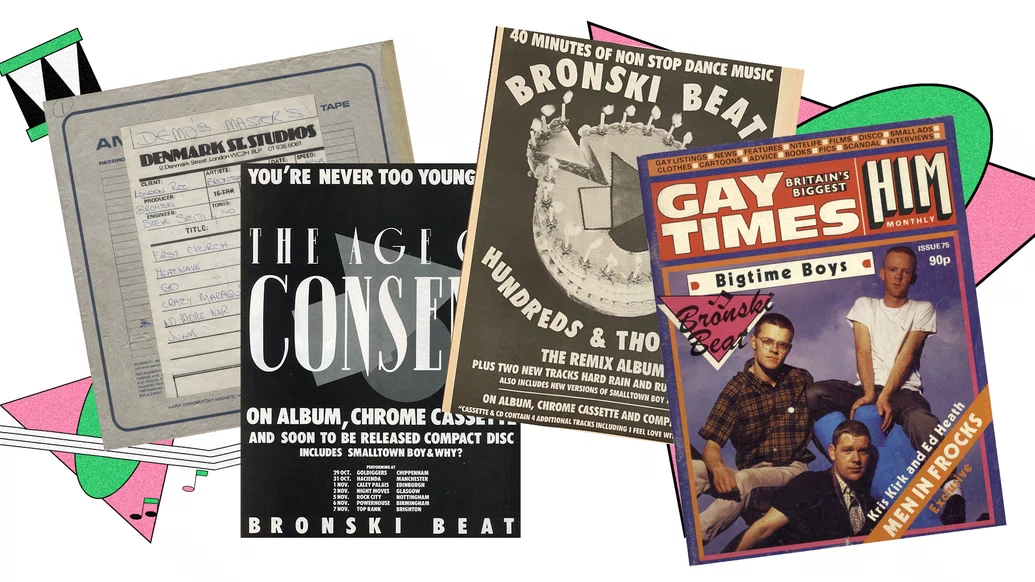
“That’s what’s so powerful about it, the film deals with it very concisely, and without words. It’s all implication. You have to fill in the narrative for yourself.” – Bernard Rose
‘Smalltown Boy’ was recorded in Ultravox lead singer John Foxx’s Garden studio in Shoreditch, along with album tracks ‘Memories’ and ‘Infatuation’. Focused on enhancing Bronski and Steinbachek’s irresistible keys, Thorne charged forth with a sound that straddled the soulful origins of American disco and the newer, synth-heavy electro styles emanating from dancefloors across Europe. Having pioneered his own method of cutting a 12” extended dance record a few years prior so DJs could play them, there couldn’t have been a better man for the job.
The resulting blend of body-writhing keys, thunderclap snares and hymnal belting speaks to a great and universal dance tradition, communicating the pain of life in a language understood by both your neighbour or local ACT UP activist. A lyric like “The love that you need will never be found at home” so viscerally acknowledges how otherness tends to fare in suburbia, while the track’s weighty foundation, Somerville’s harrowing middle eight, illuminates a possibility to escape this battlefield entirely.
40 years on, Thorne is still taken by the track’s opening gut-punch. “‘Alone on a platform, the wind and rain on a sad and lonely face’ – we've all been there,” he says. “It might’ve been seen as a Boystown song – but it appeals across the board.”
Though the story plays out through a decidedly queer lens – “Everyone already knew, we didn’t make any secrets about our sexuality,” Somerville once told an interviewer of the song’s pointed address of homophobia – the band and their label were particular about its message reading universally. “There's a lot of people who don't feel that they don't want to be trapped in the communities that they grew up in,” Somerville continued. “They don't want [to listen to] the people who've told them all their lives what to do and how to do it – they want to move away from that."
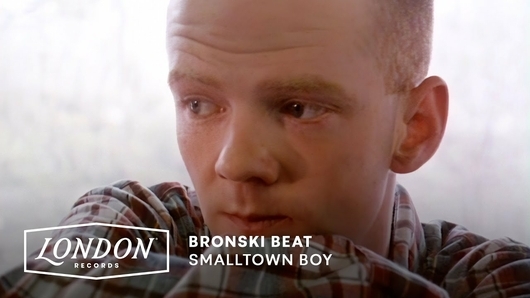
Bell brought in soon-to-be Hollywood filmmaker Bernard Rose to construct the track’s now-iconic music video. “I thought it was so beautiful,” says Rose. “It’s narrative is quite like a country song, but it’s also a disco record; it’s an odd mix.”
We first meet Somerville gazing out a window onto criss-crossing railway lines, fantasising over a lusty swimmer he attempted to cruise at a local swimming bath. Pausing to munch on the sandwich he packed for the road, we see vignettes of a subsequent gay-bashing and a stern word from his father. These scenes were storyboarded by Somerville’s flatmate, Giannaris, while Bell himself would appear as policeman, returning the bruised and beaten lead to his familial home before he flees to the big gay city with Bronski and Steinbachek in tow.
Having laid-bare the inner-workings of an S&M club for Frankie Goes To Hollywood’s uber-erotic ‘Relax’ video a few months prior (the song itself would endure a brief banning by the BBC owing to its lyrical allusions to homosexual love), Rose anticipated backlash by hiding any explicit allusions to smoking, drinking and violence in the video. The band had originally intended to depict a far more graphic homophobic assault scene that also involved cottaging, the practice of cruising for gay sex in public spaces, but were eventually dissuaded by Bell, fearing a similar backlash.
Rose remains immensely proud of the project to this day, and believes the story's endurance lies in its ambiguities and lack of definition. “That’s what’s so powerful about it, the film deals with it very concisely, and without words. It’s all implication,” he says. “You have to fill in the narrative for yourself.”
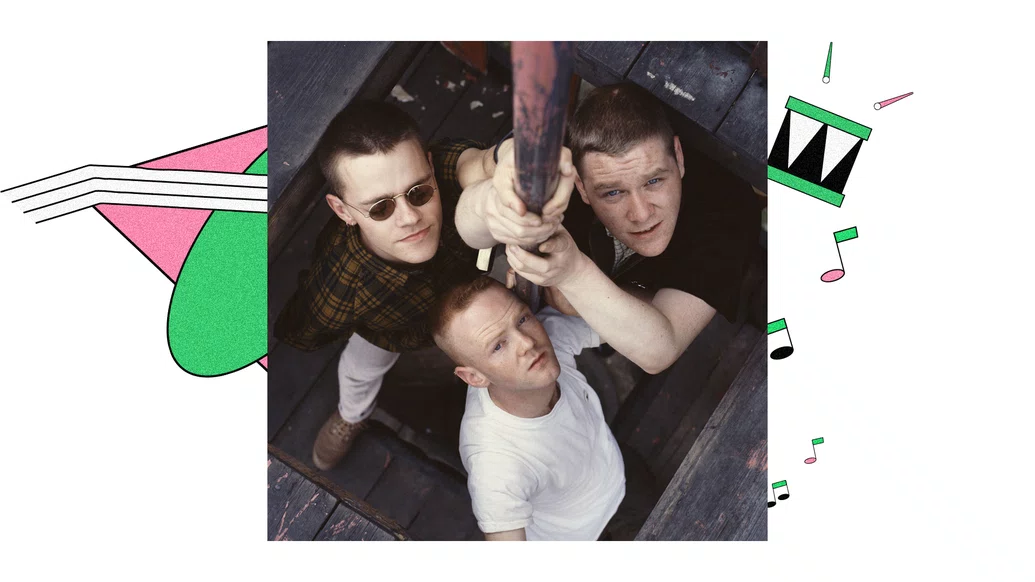
The real test for this emotive post-disco classic would come from the clubs, so Bell’s team took the single’s first pressed acetate straight from the cutting machine and into the heart of London’s gay club scene, Heaven. It was pioneering hi-NRG DJ, Ian Levine, who gave the track that fateful first spin during his longstanding residency at the venue and, after bringing the house to a frenzy with his first play, “he did something he never does,” Bell recalls. “He denies that he ever did it, but I know because I was there – he played it twice.”
The song was officially released on 25th May 1984. Eschewing the fateful ban of ‘Relax’, things picked up quickly on the radio thanks to support from Radio 1’s Peter Powell and Manchester’s Oxford Road Show. The boys would also grace the hallowed stage of Top Of The Pops, delivering their unapologetic ode to chosen family to TV sets across the country at prime time. In the month after its release, the single shot from No. 35 in the charts right up to No.3, cresting just behind Wham! and Frankie Goes To Hollywood in a trio of chart-topping queer excellence. “It just had an effect on people,” says Bell.
Bronski Beat followed the effort with singles ‘Why’ and ‘It Ain't Necessarily So’. The former focused on themes of homophobic prejudice in another campy video by Rose, in which the trio transformed a Victorian workhouse into a pulsing discotheque, and was dedicated to the memory of murdered gay playwright, Drew Griffiths. It would be their joyous ‘I Feel Love (Medley)’ that saw the trio, finally, go full-on diva. The eponymous Donna Summer classic not only borrows elements of ‘Love To Love You Baby’, but also finds the alluring vocal chops of Soft Cell’s Marc Almond and gay choir, The Pink Singers, suddenly coalescing into a veritable feast of dancefloor ecstasy, a fitting tribute to dancefloor dames that came before.
Stretching across their musical output, Bronski Beat’s beating heart was their keen involvement in political activism. ‘The Age of Consent’ had the number for the London Gay Switchboard scratched into the record’s inner groove; it listed the staggering differences in ages of consent for homosexual acts globally on the inside sleeve. They even went as far to reclaim the inverted pink triangle, used by Nazi’s to identify homosexual men during the holocaust, in its artwork.
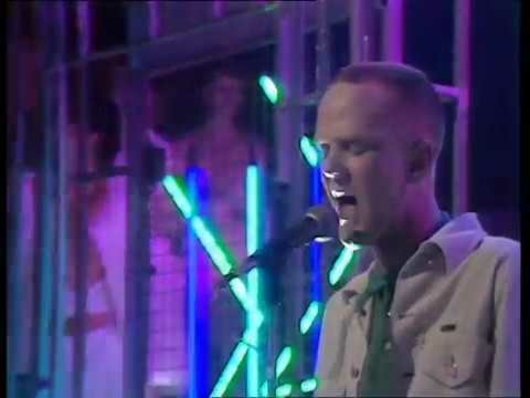
But despite the initial unity in their mission to bring queer politics to the world stage, Somerville would wave goodbye to the band just a year after the breakout success of ‘Smalltown Boy’ owing to a dispute about joining Madonna’s ‘Like A Virgin’ tour in the US. “At the time, Jimmy didn't like Madonna,” says Bell. “She hadn't yet emerged as a gay icon as we know her today, so he refused to stay in the band for another six weeks. It costs a fortune in marketing spend to break records in the US and Jimmy's refusal led to his US label cancelling the marketing spend and the record company (MCA) let the song die in America.”
After Somerville’s departure, Bronski Beat welcomed John Foster into the fold, and continued to release music via London Records’ Forbidden Fruit imprint. As for Sommerville, he would achieve similar success fronting The Communards with Richard Coles (another fixture at that fateful 1983 GLC meeting). “It was difficult because I was working with both splinters at the same time,” says Thorne. “The new Bronski Beat was casting around for a vocal style and sound that didn't really click. And then, of course, The Communards really clicked.”
Thorne would again be responsible for the UK’s highest-selling single of 1986 with The Communards’ jubilant take on Thelma Houston’s ‘Don’t Leave Me This Way’, but in 1988, just two summers after Somerville’s first and only number one, they called it quits. By this point, the likes of Pet Shop Boys (whose keyboardist, Chris Lowe, once shared a house with Somerville) and New Order had already made serious inroads in bringing danceable synth music to the mainstream, while acid house and its subsequent underground derivatives would inevitably displace hi-NRG from the dancefloor, changing the face of UK club culture forever.
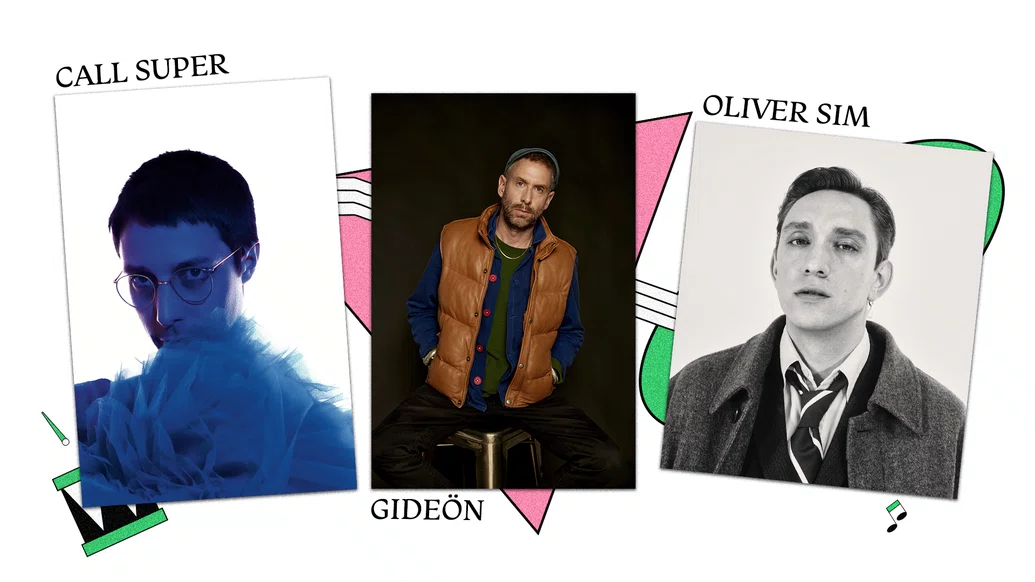
“‘Smalltown Boy’ wasn’t a lame union protest song, it was a beautifully put-together and poetic example of why faggotry, politics and dance music are all part of the same ecosystem. They’re indivisible from each other, and they always have been.” – Gideön
Nonetheless, four decades later, ‘Smalltown Boy’ remains a key cultural touchstone when referencing the queer underbelly of the 1980s. The band's headline Pits For Perverts concert at Camden’s Electric Ballroom was immortalised in 2014’s Pride; in 2017’s French ACT UP-focused film, 120 BPM, the track received a sexy, deep house rework by electronic musician Arnaud Rebotini. Just this year, it featured prominently in the trailer for the much-hyped lesbian romantic thriller, Love Lies Bleeding .
And let us not forget the song’s imprint on the mainstream pop canon: it’s been sampled by The Killers’ Brandon Flowers , and was interpolated by Swedish House Mafia’s Steve Angello and Axwell in their 2006 Supermode track, ‘Tell Me Why’, gracing a clubbier territory altogether in September’s iconic ‘Cry For You’.
In 2022, The XX’s Oliver Sim brought in Somerville as the only featured vocalist on his debut album ‘Hideous’. “I think he said, ‘use me like an instrument’,” recalls Sim, who can trace his transfixion of Somerville’s otherworldly vocals back to his childhood. On the album’s title track, those same, haunting siren calls provide an encouraging accompaniment to the revelation of Sim’s own HIV+ status, itself a recognition of the doors Bronski Beat booted open for him and other artists like him all those years ago.
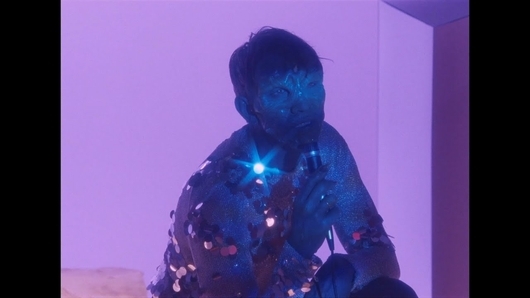
Sim remembers sitting with Jamie XX and Somerville in the studio before recording the track, quizzing him on how exactly ‘Smalltown Boy’s’ legendary keyboard riff came to be, and being awestruck by the singer’s cavalier demeanour. “It was just an instinctual thing [for him],” says Sim, “which is where all the best, innovative and impactful music tends to come from.” Naturally, he keeps the singer’s lyric sheet from the session framed on his bedroom wall, complete with the shopping list Somerville wrote alongside them.
DJ Call Super is another artist that has long been enamoured by the track, choosing this “flawless piece of pop” to close their set with at Dekmantel’s Greenhouse stage back in 2022. “The song told me that I wasn't alone, that I could still make music and tell a story of personhood and it would be, for all its pain, uplifting and glorious."
For DJ, producer and Homo-Centric label founder Gideön, ‘Smalltown Boy’ remains one of those rare records for which the production and mix have never lost their power. “It still sounds fucking phat on a sound system, or when you're hearing it on a shitty, tinny radio," he says.
“The way that Bronski Beat built a narrative around a political endeavour was genius,” he continues, bringing the track’s enduring influence into full focus: a crucial link between the golden age of disco, queer liberation, the AIDS crisis, and the tribes of LGBTQ clubland today. “‘Smalltown Boy’ wasn’t a lame union protest song, it was a beautifully put-together and poetic example of why faggotry, politics and dance music are all part of the same ecosystem. They’re indivisible from each other, and they always have been.”
‘Smalltown Boy’ is being reissued on vinyl for its 40th anniversary and has been reworked by London DJ and producer ABSOLUTE. Get the details here.
Related Content
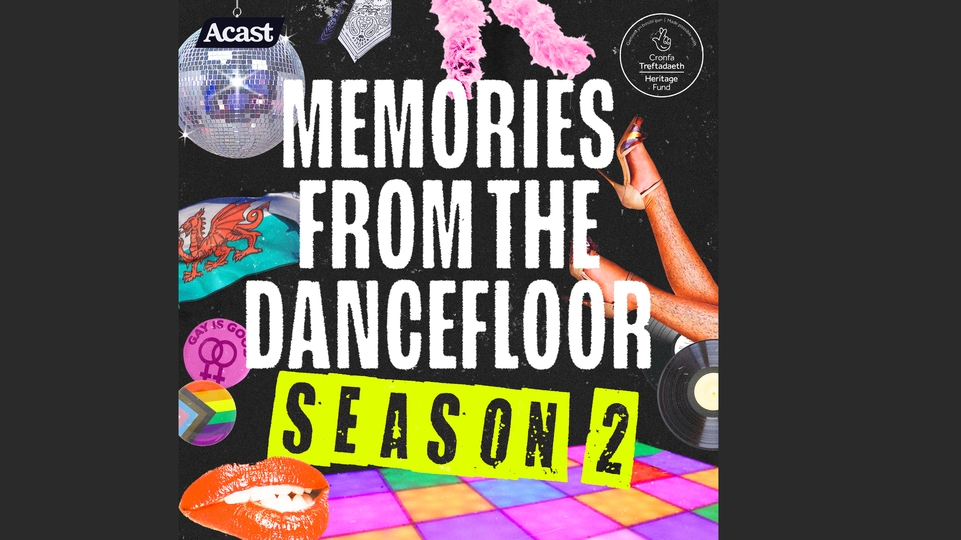
LGBTQ+ clubbing history podcast, Memories From The Dancefloor, returns for second season
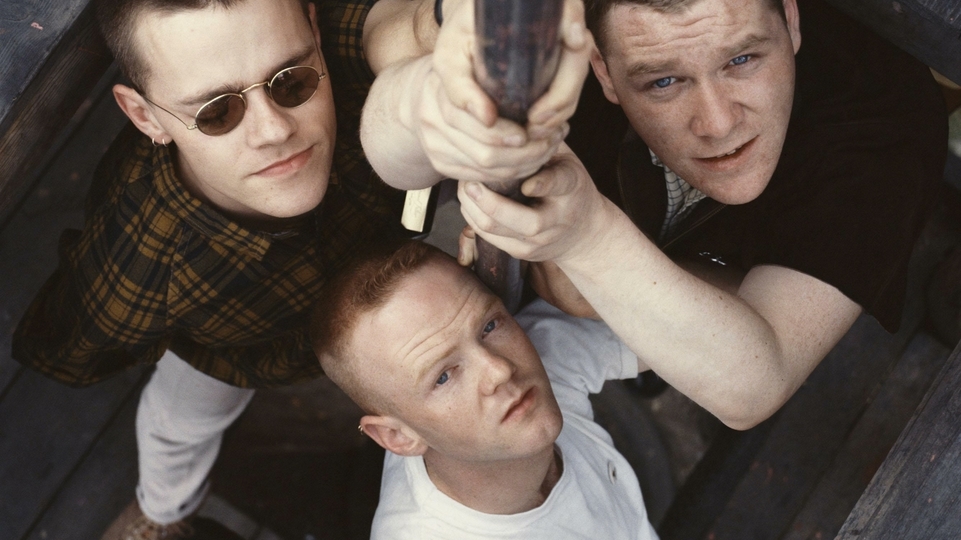
Bronski Beat’s ‘Smalltown Boy’ gets 40th anniversary reissue with ABSOLUTE. rework: Listen
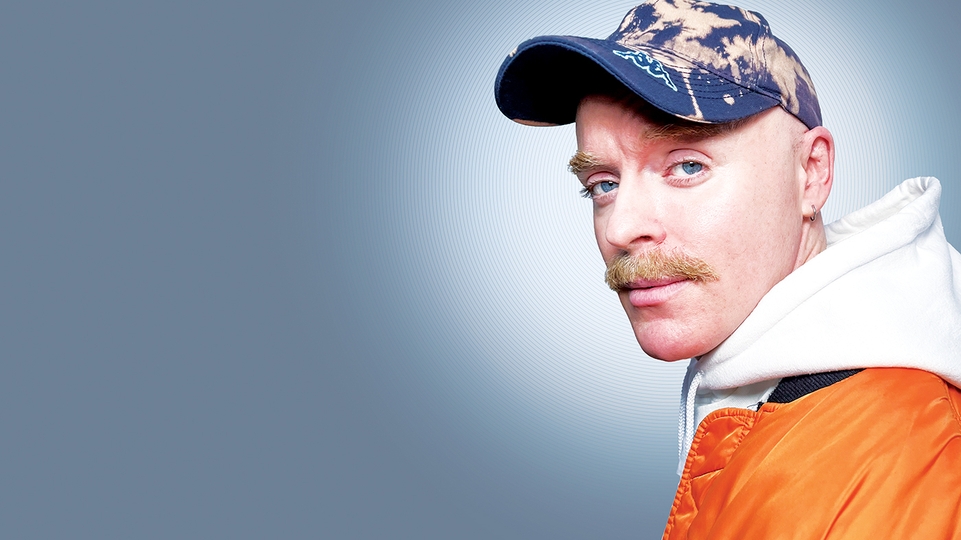
On Cue: Cormac and queer dance music history
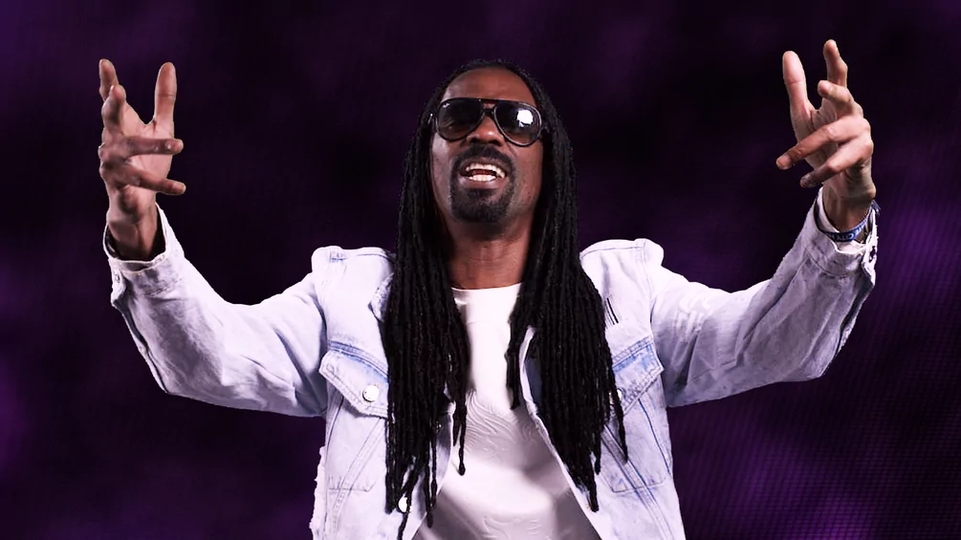
General Levy claims he received ‘no royalties’ for jungle classic, ‘Incredible’
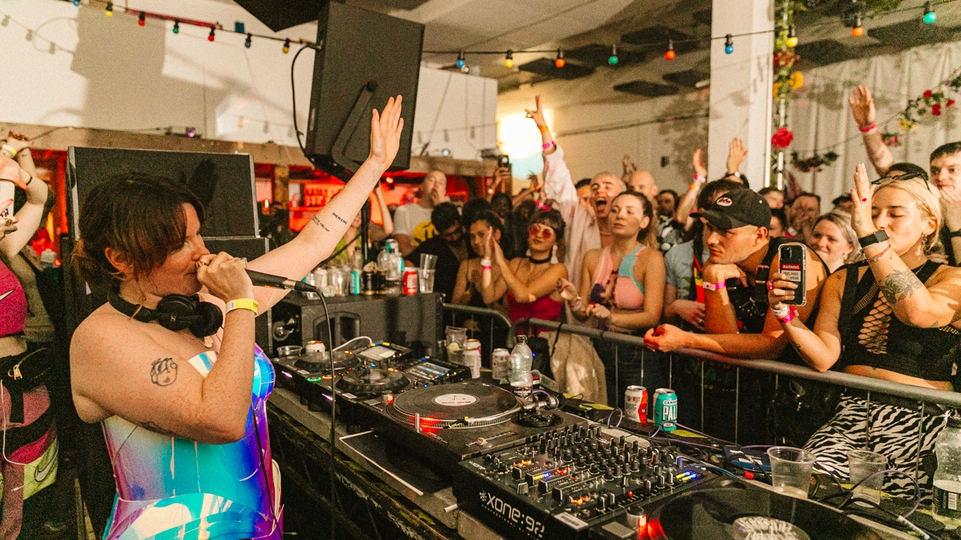
Body Movements announces line-up for 2024 winter edition
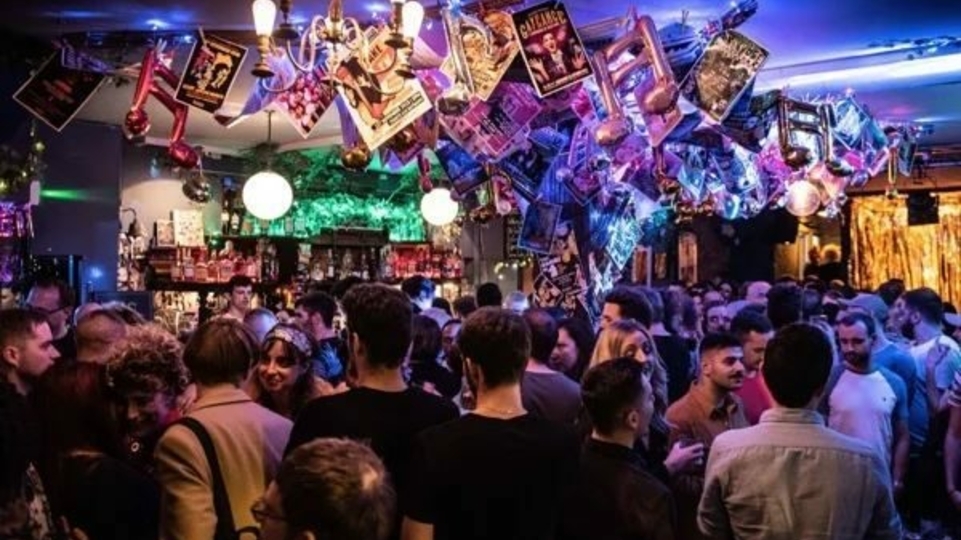
East London queer venue The Glory to close at current location due to redevelopment
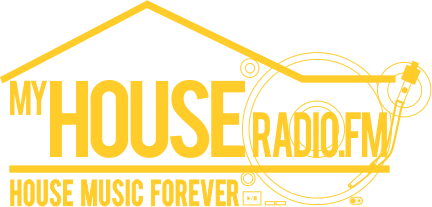
How Bronski Beat’s ‘Smalltown Boy’ became an enduring anthem of queer liberation (DJ Mag)

Released on 25th May 1984, ‘Smalltown Boy’ launched the gay synth-pop band Bronski Beat into the charts and onto dancefloors with its glorious synths, hi-NRG production and Jimmy Somerville’s soaring falsetto, which sang a story of rejection, pain and escape. Here, with the help of musicians, its iconic video’s director and others, Bailey Slater explores how, four decades on, it remains an unflinching anthem of queer liberation
When you think of the voices that defined a generation, the 1980s had plenty of options. From Sade and Sinead O’Connor to George Michael and Whitney Houston, these singers seemed to confirm that the divine was not only real, but living amongst us. Among those stars, however, you’ll find a most unlikely contender in the form of a young, scarlet-haired Glaswegian, whose angelic falsetto became a rallying cry of unflinching queerness that never once wavered in its pursuit of liberation.
That voice, of course, belongs to Jimmy Somerville, the cherubic face of Bronski Beat, a trio of gay melody makers completed by the late Steve Bronski and Larry Steinbachek. These unassuming figures introduced themselves to the masses on 25th May 1984 with the release of their debut single, ‘Smalltown Boy’, and in turn, set the stage for generations of LGBTQ+ artists to march proudly behind them. At the heart of this synth-pop psalm is Somerville, whose vocals soar high above the instantly recognisable melodies, melancholic hi-NRG bassline and pulsing drums to tell a story of familial rejection, pain and escape. But how exactly did this timeless anthem of otherness in suburbia become one of the decade’s most enduringly sombre floor fillers?
“We absolutely knew that this was potentially a life-changing record for many people,” recalls Colin Bell, the openly gay former Managing Director of London Recordings, who took a punt on releasing the song. “It’s probably the record I am most proud of because it actually was risky. Turning it into a hit wasn’t as straightforward as you think.”
Bell first encountered the boys at a meeting for the Greater London Council in 1983, then under the steerage of Ken Livingstone, where funds were being allocated for a first-of-its-kind lesbian and gay arts festival, September In The Pink. The fledgling band attended after reading about it in the Capital Gay newspaper; they played their demo tape to the committee, and were subsequently invited to perform at the event in London’s premier gay nightclub, Heaven.
The group had come together just a few months before, through a series of fortuitous chance encounters and budding friendships. Somerville had met Steinbachek through the artist Jill Whisson, whose work would later appear on the sleeves of ‘Smalltown Boy’ and their cover of Donna Summer’s disco anthem, ‘I Feel Love’. It was shortly after he had been evicted from his West End squat, where he’d lived with the film director Connie Giannaris; they both ended up moving into Whisson and Steinbachek’s Brixton abode. Steinbachek, meanwhile, had recently been introduced by an ex-boyfriend to the eponymous Bronski, another Glasgow transplant; the pair shacked up soon after.
The track they played at that meeting was a version of their first-ever collaboration, ‘Screaming’, which Somerville had initially recorded solo for the soundtrack of a film project he was involved in called Framed Youth: Revenge of the Teenage Perverts . When Steinbachek and Bronski, who were already dabbling with synthesisers in the former’s home studio, heard his vocal take, backed only by a drum machine, they were stunned by his singing, and quickly added a keyboard part using a Tascam portastudio.

There were never any official plans to form a band per se, but from there, things started happening: they fashioned their name in a punny tribute to Roxy Music, a tongue-in-cheek suggestion by Bronski, and began fashioning themselves into a musical tour-de-force.
The group’s influences came from both sides of the Atlantic. Somerville had been obsessed by Giorgio Moroder’s hi-NRG synth sounds from the first time he heard Donna Summer as a teenager, later dancing to them and gay anthems by Village People in Glasgow club Shuffles. The UK capital around this time was a hotbed of subcultures, emanating from artists’ squats across the city and into the hedonistic clubs and fashion scenes populated by Blitz Kids, Wag Club-goers and future patrons of Leigh Bowery’s Taboo. The AIDS epidemic was yet to decimate these spaces, despite having claimed the life of DJ Terry Higgins a year earlier, and the city’s LGBTQIA+ community was making great strides in its bid for wider acceptance.
Bronski Beat were regulars in the King’s Cross venue, The Bell, a crucial hub for the London queer community that hosted alternative music nights. It was there that they had their first gig, playing the six songs they had, and obliging an encore to play them all again.
It was during a gig at Marylebone’s Cockpit Theatre that Bell heard ‘Smalltown Boy’ for the first time, alongside a London Records A&R. He knew instantly that he had to sign it. After beating out Virgin and RCA for the deal, his next order of business was to bring in producer Mike Thorne, who was still riding high off the era-defining success of Soft Cell’s ‘Tainted Love’, the UK’s biggest-selling single of 1981. Thorne was an early adopter of the synth, and saw Bronski Beat’s vision clearly from the get-go, melding their overt queer politics and mesmeric melodies with the odd sprinkling of marimba and shattered glass to produce their debut album, ‘The Age Of Consent’, in its entirety.

“That’s what’s so powerful about it, the film deals with it very concisely, and without words. It’s all implication. You have to fill in the narrative for yourself.” – Bernard Rose
‘Smalltown Boy’ was recorded in Ultravox lead singer John Foxx’s Garden studio in Shoreditch, along with album tracks ‘Memories’ and ‘Infatuation’. Focused on enhancing Bronski and Steinbachek’s irresistible keys, Thorne charged forth with a sound that straddled the soulful origins of American disco and the newer, synth-heavy electro styles emanating from dancefloors across Europe. Having pioneered his own method of cutting a 12” extended dance record a few years prior so DJs could play them, there couldn’t have been a better man for the job.
The resulting blend of body-writhing keys, thunderclap snares and hymnal belting speaks to a great and universal dance tradition, communicating the pain of life in a language understood by both your neighbour or local ACT UP activist. A lyric like “The love that you need will never be found at home” so viscerally acknowledges how otherness tends to fare in suburbia, while the track’s weighty foundation, Somerville’s harrowing middle eight, illuminates a possibility to escape this battlefield entirely.
40 years on, Thorne is still taken by the track’s opening gut-punch. “‘Alone on a platform, the wind and rain on a sad and lonely face’ – we’ve all been there,” he says. “It might’ve been seen as a Boystown song – but it appeals across the board.”
Though the story plays out through a decidedly queer lens – “Everyone already knew, we didn’t make any secrets about our sexuality,” Somerville once told an interviewer of the song’s pointed address of homophobia – the band and their label were particular about its message reading universally. “There’s a lot of people who don’t feel that they don’t want to be trapped in the communities that they grew up in,” Somerville continued. “They don’t want [to listen to] the people who’ve told them all their lives what to do and how to do it – they want to move away from that.”
Bell brought in soon-to-be Hollywood filmmaker Bernard Rose to construct the track’s now-iconic music video. “I thought it was so beautiful,” says Rose. “It’s narrative is quite like a country song, but it’s also a disco record; it’s an odd mix.”
We first meet Somerville gazing out a window onto criss-crossing railway lines, fantasising over a lusty swimmer he attempted to cruise at a local swimming bath. Pausing to munch on the sandwich he packed for the road, we see vignettes of a subsequent gay-bashing and a stern word from his father. These scenes were storyboarded by Somerville’s flatmate, Giannaris, while Bell himself would appear as policeman, returning the bruised and beaten lead to his familial home before he flees to the big gay city with Bronski and Steinbachek in tow.
Having laid-bare the inner-workings of an S&M club for Frankie Goes To Hollywood’s uber-erotic ‘Relax’ video a few months prior (the song itself would endure a brief banning by the BBC owing to its lyrical allusions to homosexual love), Rose anticipated backlash by hiding any explicit allusions to smoking, drinking and violence in the video. The band had originally intended to depict a far more graphic homophobic assault scene that also involved cottaging, the practice of cruising for gay sex in public spaces, but were eventually dissuaded by Bell, fearing a similar backlash.
Rose remains immensely proud of the project to this day, and believes the story’s endurance lies in its ambiguities and lack of definition. “That’s what’s so powerful about it, the film deals with it very concisely, and without words. It’s all implication,” he says. “You have to fill in the narrative for yourself.”

The real test for this emotive post-disco classic would come from the clubs, so Bell’s team took the single’s first pressed acetate straight from the cutting machine and into the heart of London’s gay club scene, Heaven. It was pioneering hi-NRG DJ, Ian Levine, who gave the track that fateful first spin during his longstanding residency at the venue and, after bringing the house to a frenzy with his first play, “he did something he never does,” Bell recalls. “He denies that he ever did it, but I know because I was there – he played it twice.”
The song was officially released on 25th May 1984. Eschewing the fateful ban of ‘Relax’, things picked up quickly on the radio thanks to support from Radio 1’s Peter Powell and Manchester’s Oxford Road Show. The boys would also grace the hallowed stage of Top Of The Pops, delivering their unapologetic ode to chosen family to TV sets across the country at prime time. In the month after its release, the single shot from No. 35 in the charts right up to No.3, cresting just behind Wham! and Frankie Goes To Hollywood in a trio of chart-topping queer excellence. “It just had an effect on people,” says Bell.
Bronski Beat followed the effort with singles ‘Why’ and ‘It Ain’t Necessarily So’. The former focused on themes of homophobic prejudice in another campy video by Rose, in which the trio transformed a Victorian workhouse into a pulsing discotheque, and was dedicated to the memory of murdered gay playwright, Drew Griffiths. It would be their joyous ‘I Feel Love (Medley)’ that saw the trio, finally, go full-on diva. The eponymous Donna Summer classic not only borrows elements of ‘Love To Love You Baby’, but also finds the alluring vocal chops of Soft Cell’s Marc Almond and gay choir, The Pink Singers, suddenly coalescing into a veritable feast of dancefloor ecstasy, a fitting tribute to dancefloor dames that came before.
Stretching across their musical output, Bronski Beat’s beating heart was their keen involvement in political activism. ‘The Age of Consent’ had the number for the London Gay Switchboard scratched into the record’s inner groove; it listed the staggering differences in ages of consent for homosexual acts globally on the inside sleeve. They even went as far to reclaim the inverted pink triangle, used by Nazi’s to identify homosexual men during the holocaust, in its artwork.
After Somerville’s departure, Bronski Beat welcomed John Foster into the fold, and continued to release music via London Records’ Forbidden Fruit imprint. As for Sommerville, he would achieve similar success fronting The Communards with Richard Coles (another fixture at that fateful 1983 GLC meeting). “It was difficult because I was working with both splinters at the same time,” says Thorne. “The new Bronski Beat was casting around for a vocal style and sound that didn’t really click. And then, of course, The Communards really clicked.”
Thorne would again be responsible for the UK’s highest-selling single of 1986 with The Communards’ jubilant take on Thelma Houston’s ‘Don’t Leave Me This Way’, but in 1988, just two summers after Somerville’s first and only number one, they called it quits. By this point, the likes of Pet Shop Boys (whose keyboardist, Chris Lowe, once shared a house with Somerville) and New Order had already made serious inroads in bringing danceable synth music to the mainstream, while acid house and its subsequent underground derivatives would inevitably displace hi-NRG from the dancefloor, changing the face of UK club culture forever.

“‘Smalltown Boy’ wasn’t a lame union protest song, it was a beautifully put-together and poetic example of why faggotry, politics and dance music are all part of the same ecosystem. They’re indivisible from each other, and they always have been.” – Gideön
Nonetheless, four decades later, ‘Smalltown Boy’ remains a key cultural touchstone when referencing the queer underbelly of the 1980s. The band’s headline Pits For Perverts concert at Camden’s Electric Ballroom was immortalised in 2014’s Pride; in 2017’s French ACT UP-focused film, 120 BPM, the track received a sexy, deep house rework by electronic musician Arnaud Rebotini. Just this year, it featured prominently in the trailer for the much-hyped lesbian romantic thriller, Love Lies Bleeding.
And let us not forget the song’s imprint on the mainstream pop canon: it’s been sampled by The Killers’ Brandon Flowers, and was interpolated by Swedish House Mafia’s Steve Angello and Axwell in their 2006 Supermode track, ‘Tell Me Why’, gracing a clubbier territory altogether in September’s iconic ‘Cry For You’.
In 2022, The XX’s Oliver Sim brought in Somerville as the only featured vocalist on his debut album ‘Hideous’. “I think he said, ‘use me like an instrument’,” recalls Sim, who can trace his transfixion of Somerville’s otherworldly vocals back to his childhood. On the album’s title track, those same, haunting siren calls provide an encouraging accompaniment to the revelation of Sim’s own HIV+ status, itself a recognition of the doors Bronski Beat booted open for him and other artists like him all those years ago.
Sim remembers sitting with Jamie XX and Somerville in the studio before recording the track, quizzing him on how exactly ‘Smalltown Boy’s’ legendary keyboard riff came to be, and being awestruck by the singer’s cavalier demeanour. “It was just an instinctual thing [for him],” says Sim, “which is where all the best, innovative and impactful music tends to come from.” Naturally, he keeps the singer’s lyric sheet from the session framed on his bedroom wall, complete with the shopping list Somerville wrote alongside them.
DJ Call Super is another artist that has long been enamoured by the track, choosing this “flawless piece of pop” to close their set with at Dekmantel’s Greenhouse stage back in 2022. “The song told me that I wasn’t alone, that I could still make music and tell a story of personhood and it would be, for all its pain, uplifting and glorious.”
For DJ, producer and Homo-Centric label founder Gideön, ‘Smalltown Boy’ remains one of those rare records for which the production and mix have never lost their power. “It still sounds fucking phat on a sound system, or when you’re hearing it on a shitty, tinny radio,” he says.
“The way that Bronski Beat built a narrative around a political endeavour was genius,” he continues, bringing the track’s enduring influence into full focus: a crucial link between the golden age of disco, queer liberation, the AIDS crisis, and the tribes of LGBTQ clubland today. “‘Smalltown Boy’ wasn’t a lame union protest song, it was a beautifully put-together and poetic example of why faggotry, politics and dance music are all part of the same ecosystem. They’re indivisible from each other, and they always have been.”
Share, Choose Your Platform!
About the author: michele sensale.
Related Posts

AMAPIANO’S SECOND WAVE: HOW INNOVATIONS EMERGE FROM BLACK SOUTH AFRICAN CULTURE (MIXMAG)

New York reforms zoning laws in a major boost for nightlife (Resident Advisor)

LGBTQ+ clubbing history podcast, Memories From The Dancefloor, returns for second season (DJ Mag)

Introducing the Twitch DJ Program (Twitch.com)

On Cue: Cormac and Queer Dance Music History (DJ Mag)
Leave a comment cancel reply.
You must be logged in to post a comment.
This site uses Akismet to reduce spam. Learn how your comment data is processed .
- News & Reviews
- Tours & Tickets
- Consequence

Bronski Beat
Upcoming bronski beat festivals appearances, upcoming bronski beat concerts near me.

R.I.P. Steve Bronski, Co-Founder of Bronski Beat Dead at 61
The keyboardist was best known for his group's 1984 hit "Smalltown Boy."
December 9, 2021

Orville Peck and Rina Sawayama Cover Pop Hits for Pride Month: Stream
Peck takes on Bronski Beat, while Sawayama reworks Lady Gaga.
June 29, 2020
You must be logged in to post a comment.
bronskibeat - Official website

Jimmy Somerville Verified
Similar artists on tour.

Live Photos of Jimmy Somerville
Concerts and tour dates, fan reviews.
About Jimmy Somerville
- Statistics Stats
- You are here:
- Bronski Beat
- Tour Statistics
- Song Statistics Stats
- Tour Statistics Stats
- Other Statistics
All Setlists
- All setlist songs ( 56 )
Years on tour
- 1996 ( 3 )
- 1995 ( 4 )
- 1994 ( 2 )
- 1993 ( 1 )
- 1990 ( 1 )
- 1989 ( 1 )
- 1987 ( 13 )
- 1986 ( 2 )
- 1985 ( 5 )
- 1984 ( 23 )
- 1983 ( 1 )
- Avg Setlist
- Concert Map
Songs played total
This table lists how often a song was performed by Bronski Beat. Multiple performances from the same setlist are also counted towards the total.
- Jun 17, 2024
- Jun 16, 2024
- Jun 15, 2024
- Jun 14, 2024
- Jun 13, 2024
- Jun 12, 2024
- FAQ | Help | About
- Terms of Service
- Ad Choices | Privacy Policy
- Feature requests
- Songtexte.com
- Search Please fill out this field.
- Newsletters
- Sweepstakes
Street musician surprised by pop star while singing his song -- VIDEO
Talk about good timing.
A Berlin street musician was given the surprise and performance of a lifetime by Scottish pop singer Jimmy Somerville. While playing the 1984 synth anthem “Smalltown Boy” by Bronski Beat, Somerville — who was the lead singer of the group — stops and joins in while walking his dog. The impromptu duet was captured on film by bystanders, including the reaction from the unnamed street musician when he realizes who he was just harmonizing with.
Watch the video below:
Related Articles
Bronski Beat
- Best albums
- Your feedback
The best album credited to Bronski Beat is The Age Of Consent which is ranked number 6,527 in the overall greatest album chart with a total rank score of 198.
Bronski Beat is ranked number 4,063 in the overall artist rankings with a total rank score of 218.

Upcoming concerts

Listen to Bronski Beat on YouTube
Bronski beat best albums.
The following albums by Bronski Beat are ranked highest in the greatest album charts:

This may not be a complete discography for Bronski Beat.This listing only shows those albums by this artist that appear in at least one chart on this site. If an album is 'missing' that you think deserves to be here, you can include it in your own chart from the My Charts page!
Bronski Beat bestography composition
Bronski beat best tracks.
Include tracks from compilations & live albums | Exclude tracks from compilations & live albums The same track can appear on multiple albums, so excluding tracks from compilations and live albums helps to remove duplicates from this list.
- Related links:
- Top tracks of all time
Bronski Beat ratings

Showing latest 5 ratings for this artist. | Show all 6 ratings for this artist.

Please log in or register if you want to be able to leave a rating
Bronski Beat favourites
Please log in or register if you want to be able to add a favourite
Bronski Beat comments
Be the first to add a comment for this artist - add your comment !
Please log in or register if you want to be able to add a comment
Your feedback for Bronski Beat
Synthpop Nonstop
Series produced by Synthpop Nonstop

- Added: Jun 17, 2024
- Length: 59:00

- Added: Jun 10, 2024

Russia’s fighters are waging bloody battles in Ukraine’s east to add to its captured territory.
Moscow supports this war effort with soldiers from outside the regular army, including some from a training camp in Chechnya.
Some join for the money, others to escape everyday drudgery, and some fight out of patriotism. But there are tearful goodbyes.
Soldiers trained in Chechnya range from battle tested mercenaries to raw recruits without combat experience.
Mayhem awaits them, as evident in the devastation of the city of Bakhmut.
Inside the Chechen Units Helping to Fight Russia’s War
Photographs by Nanna Heitmann
Text by Neil MacFarquhar
Nanna Heitmann spent time observing Russian troops training in Chechnya, then later traveled to Bakhmut, Ukraine. Neil MacFarquhar reported from New York.
A hulking military transport plane roared onto the tarmac at the main airfield in Grozny, the capital of the Chechen Republic in southeastern Russia, and a group of 120 volunteer fighters heading for Ukraine clambered aboard.
Dressed in camouflage, the newly minted troops had just completed at least 10 days of training in Gudermes, near Grozny, at the Special Forces University, which accepts men from across Russia for general military instruction.
Some of the trainees lacked any combat experience. Others were veterans returning to Ukraine for their second or third tour — including former mercenaries from the Wagner militia, disbanded in 2023 after a short-lived mutiny against the Kremlin.

Some Wagner fighters, chafing at the idea of working for the Russian Defense Ministry, instead transferred whole units to the Chechen-trained forces, known as Akhmat battalions, intended in part to absorb fighters from outside the Russian Army. Wagner veterans were often first recruited from prison, including a lean man with a gold front tooth, identified only by his military call sign, “Jedi,” because of the potential for retribution.
“Go for your Fatherland? What kind of Fatherland? It kept me in prison all my life,” said Jedi, 39, a construction laborer who was convicted of robbery and fraud. In and out of jail since 14, he had six months left on a six-year sentence when he signed up.
“The volunteers go for the money,” he said. “I have yet to meet anyone here for the ideology.” He also wanted a clean slate, he said.
Fat signing bonuses plus payments of about $2,000 per month, at least double the average wage in Russia, have spurred recruitment.
The training near Grozny highlights the evolution of ethnic loyalties that is manifest in this war. Some of those now training there were last in Chechnya as young conscripts for the Russian Army, fighting against Chechens who were part of the separatist movement.
The participation of some Chechens represents another inversion of history: After hundreds of years of enmity with Russia, Chechens were deploying to Ukraine to fight Moscow’s war.
The separatist movement of the 1990s culminated in two brutal wars against Moscow that lasted intermittently for over a decade. The city of Grozny was flattened, and tens of thousands of Chechens died.

Chechnya is ruled by the strongman Ramzan Kadyrov. Portraits of him and his father, Akhmat Kadyrov, can be seen all over Grozny.
Grozny, the capital, was entirely rebuilt after the Russian military flattened it during the Chechen wars.
The history of those wars is not commemorated the way other conflicts are, such as World War II.
A downtown photo exhibit chronicles both the devastation and reconstruction of the city.
Few traces of Grozny’s destruction remain. Today, new mosques and luxury boutiques stand amid the skyscrapers.
Ramzan Kadyrov, the authoritarian leader of Chechnya, has taken an aggressive stance toward Ukraine since Russia invaded the country in February 2022. Chechen forces have claimed an instrumental role in some key battles, including the siege of Mariupol early in the war.
But Mr. Kadyrov has faced accusations that he has refrained from sending his fighters full-bore into the fight, with Chechens dying in fewer numbers than soldiers from other minority areas. Sparing his fighters keeps intact his private militia, the core of the security forces that ensure his rule in Chechnya.
Instead, Mr. Kadyrov has tried to underscore his loyalty to President Vladimir V. Putin of Russia by pouring resources into this military training center. The regimen consists of live fire exercises with artillery, some mining and demining instruction and first aid.
The various Akhmat battalions were named, like so much in Chechnya, after Mr. Kadyrov’s father, Akhmat Kadyrov, who switched sides to join Moscow in the separatist struggle and was then assassinated in 2004.
Russia has recruited troops for its war effort wherever it could find them, seeking to minimize the need for a draft. In 2022, it lifted an almost blanket ban on Chechens serving in the Russian military, fallout from the separatist movement.
Of the group being dispatched to Ukraine last fall from the tarmac in Grozny, many were in their 30s and 40s, and fewer than 10 were Chechens. Despite Jedi’s claims, money is not the sole motivation.
Some fled troubled domestic lives. Others wanted to escape daily drudgery. Some, of course, profess to be fighting out of patriotism. Many of the men agreed to talk on the condition that they be identified by only their first names or military call signs for fear of retribution.
Anatoly, 24, was among 10 men who volunteered together from a small farming village high in the mountains in the picturesque, south-central Altai region. “My father forced me to shovel snow, to work, to clear out the dung from the cows,” he said. “I ran away from this work to do something else. Every year is the same.” He admitted that the money was an incentive, too.
Another rural worker, a 45-year-old shepherd who uses the call sign “Masyanya,” traveled about 4,500 kilometers from the Republic of Khakassia for the training. “I’m going to defend my motherland, so the war doesn’t come here,” he said.
The contract with the Akhmat battalion lasts only four months, a big incentive when compared with the open-ended deployments for regular soldiers.
Last fall, Mr. Kadyrov formed a new unit, the Sheikh Mansour battalion, named after an 18th-century imam who fought against the Russian Empire. The soldiers are all Chechens or from the small, neighboring republics in the mountainous Caucasus region, and are mostly in their 20s. Chechens fighting for Ukraine against Russia named their battalion after Sheikh Mansour first, and now Mr. Kadyrov is trying to reclaim the name.
Turpal, 20, was working as a security guard for a large supermarket chain in Moscow when he got permission from his father to sign up for the new unit, saying that he wanted to fight against “those devils who are in Ukraine who want to bring their perverted ideas here.”
As he left to go back to the training center after a weekend visiting his parents, he hugged his mother and shook hands with his father. “Russia has been fighting for all its existence,” said Mayrali, Turpal’s father. “You can’t beat it. It is better for Chechnya to be with Russia than to be against Russia.”
Wagner veterans serve in the Sheikh Mansour battalion, too. A 35-year-old fighter who uses the call sign “Dikiy,” or “Wild,” said that he had served 18 months of a nearly 10-year sentence for murder when he signed up. He fought in Ukraine for 11 months, was wounded three times and still gets fierce headaches.
Back in Chechnya, he found the idea of working for $200 per month demoralizing, so he returned to the war. “I don’t know how to do anything else,” he said.
The Akhmat troops are better equipped than the regular army; unlike some regular Russian soldiers, they do not have to buy their own basic equipment.
Jedi said that when he first deployed with Wagner in Ukraine, some young men in the Russian Army came running up begging for supplies, for fuel and for bread. “In Akhmat, I don’t even wash my socks. I wear them, throw them away, wear them,” he said. “The same applies to underwear and bed linen. We have everything.”
Moscow subsidizes an estimated 80 percent of Chechnya’s budget, though it is unclear how much goes to military training.
At the airfield, before the battalion departed, a senior officer lined up the new soldiers to wish them good luck. “Are the fighters ready?” he shouted. “Yes sir,” they barked in unison, followed by the Muslim expression “Allahu akbar!” or “God is great!” plus the Chechen war cry, “Akhmat Sila!” or “Akhmat rules!”
Once they arrived in the Donbas region of eastern Ukraine, some of the men were assigned to maintain Russian control over Bakhmut, now an abandoned husk of a city after months of fierce fighting.
The streets are deserted, especially during the day, when Ukrainian drones roam overhead, hunting for targets. On foggy days, fighters can sometimes be glimpsed walking through the rubble.
Traffic rumbles to life at night, when the wounded from battles scattered around the Bakhmut region are evacuated. The roads are littered with burned cars and ambulances.
While the war grinds relentlessly above ground, the roar of artillery and exploding shells does not penetrate far beneath the surface, where the Akhmat forces have taken over a field hospital first set up by Wagner.
The Bakhmut region was once famous for its sparkling wine, and the hospital operates in the maze of underground tunnels where tens of thousands of bottles remain stored along the walls. (The prohibition on drinking it by both Wagner and Akhmat has been largely respected.) Once a tourist attraction, the old décor is still intact; dusty plaster statues of ancient gods loom over the wounded.
The caves are wide enough to accommodate at least two vans abreast, and several times a day, vehicles ferrying the wounded and the dead navigate the darkened, fog-shrouded labyrinth. Soldiers leap from the vehicles and quickly carry their often groaning comrades on stretchers to the makeshift stabilization point.

In Bakhmut, wounded Russian soldiers are treated at an underground hospital.
Though Russian forces captured the city last year, fighting in the vicinity remains fierce.
Medical personnel operate in rooms set up in a warren of tunnels that once served as a wine cellar.
The wounded are ferried on stretchers day and night as explosions boom in the distance.
Wounded soldiers wait to get treated at the underground hospital.
One of the surgeons, Bulya, 34, has worked for Wagner, mostly in Africa, since 2017. On trips to Moscow, he said, people there reacted to seeing him in his fatigues like “dirt under your fingernails,” but in Chechnya, he found more respect.
As losses pile up, Bulya said that he was eager for the Russian Army to make it to Kyiv. “I don’t need their negotiations,” he said using an expletive. “I hope that Vladimir Vladimirovich Putin will do that, that we will go to the end. We will get there.”
Anastasia Trofimova contributed reporting from Grozny and Bakhmut.
Neil MacFarquhar has been a Times reporter since 1995, writing about a range of topics from war to politics to the arts, both internationally and in the United States. More about Neil MacFarquhar
- Share full article
Our Coverage of the War in Ukraine
News and Analysis
President Biden and the NATO secretary general, Jens Stoltenberg, announced that a record number of allies were meeting their military spending commitments as they sought to present a united front against Russia.
President Vladimir Putin of Russia will visit North Korea for a meeting with its leader, Kim Jong-un, as the two countries deepen military ties to support Putin’s war in Ukraine with North Korean weapons .
Scores of countries at a two-day summit in Switzerland joined Ukraine in calling for “dialogue between all parties” to end the war , but world leaders were divided on how to engage Russia.
Narrowing Press Freedoms: Journalists in Ukraine say they are subject to increasing restrictions and pressure from the government , adding that the measures go beyond wartime security needs.
Images From the Border: Photographs from two trips along Ukraine’s northeastern border regions, in the months before Russia renewed an offensive there, reveal loss and transformation .
A Russian City Adapts: While in Moscow the fighting feels far away, residents of Belgorod, 25 miles from the border with Ukraine, have learned to duck for cover when the sirens wail .
How We Verify Our Reporting
Our team of visual journalists analyzes satellite images, photographs , videos and radio transmissions to independently confirm troop movements and other details.
We monitor and authenticate reports on social media, corroborating these with eyewitness accounts and interviews. Read more about our reporting efforts .
Advertisement

IMAGES
VIDEO
COMMENTS
Find information on all of Bronski Beat's upcoming concerts, tour dates and ticket information for 2024-2025. Unfortunately there are no concert dates for Bronski Beat scheduled in 2024. Songkick is the first to know of new tour announcements and concert information, so if your favorite artists are not currently on tour, join Songkick to ...
Bronski Beat were a British synth-pop band formed in 1983 in London, England. The initial lineup, which recorded the majority of their hits, ... Also in 1987, Bronski Beat and Somerville performed at a reunion concert for "International AIDS Day", supported by New Order, at the Brixton Academy, London.
To buy Bronski Beat tickets, click the ticket listing and you will be directed to SeatGeek's fast checkout process to complete the information fields. SeatGeek will process your order and deliver your Bronski Beat tickets. For the fastest day-of entry, download SeatGeek's mobile app to access your tickets right on your phone.
Bronski Beat were regulars in the King's Cross venue, The Bell, a crucial hub for the London queer community that hosted alternative music nights. ... The band's headline Pits For Perverts concert at Camden's Electric Ballroom was immortalised in 2014's Pride; in 2017's French ACT UP-focused film, 120 BPM, the track received a sexy, ...
Released on 25th May 1984, 'Smalltown Boy' launched the gay synth-pop band Bronski Beat into the charts and onto dancefloors with its glorious synths, hi-NRG production and Jimmy Somerville's soaring falsetto, which sang a story of rejection, pain and escape. Here, with the help of musicians, its iconic video's director and others, Bailey Slater
Bronski Beat. 34,423 likes · 36,795 talking about this. Watch this space for news on 40 years of Bronski Beat Run by Bronski's Beat's Record Label- London Records.
Bronski Beat Tickets, Tour Dates & Concerts 2024/2025 ♫. Bronski Beat were a synth-pop band from London that started in 1983 with original members Jimmy Somerville (vocals), Steve Bronski (born Steven William Forrest, keyboards, percussion) and Larry Steinbachek (keyboards, percussion). They were active until 1995, and again between 2016-2018.
The songs that Bronski Beat performs live vary, but here's the latest setlist that we have from the April 04, 1987 concert at O2 Academy Brixton in London, England, United Kingdom: Why? Bronski Beat tours & concert list along with photos, videos, and setlists of their live performances.
Get the latest news on Bronski Beat, including song releases, album announcements, tour dates, festival appearances, and more.
Listen to 'Hit That Perfect Beat': https://BronskiBeat.lnk.to/HitThatPerfectBeatID Subscribe to our channel: https://londonrecords.lnk.to/YTSubscribeIDSign u...
Please try again later. (Playback ID: 8OhUGYRDzOv4L-fm) Learn More. Mailing list Official store. Bronski Beat - Official website.
Get Bronski Beat setlists - view them, share them, discuss them with other Bronski Beat fans for free on setlist.fm! setlist.fm Add Setlist. Search Clear search ... Bronski Beat Concert Setlists & Tour Dates. Aug 23 1996. Bronski Beat at Portsmouth Music Big Top 1996. Artist: Bronski Beat ...
Listen to 'Smalltown Boy (ABSOLUTE. Rework)' here: https://bronskibeat.lnk.to/AbsoluteReworkID Listen to the 'Smalltown Boy' playlist here: https://bronskibe...
Taken from the album "The Age of Consent", available on all platforms: https://BronskiBeat.lnk.to/TheAgeOfConsentIDListen to the 'Smalltown Boy' playlist her...
Find tickets for Jimmy Somerville concerts near you. Browse 2024 tour dates, venue details, concert reviews, photos, and more at Bandsintown. ... Was a star in the 80's with Bronski Beat and The Communards as well as while working solo. Born and raised in Glasgow with his signature falsetto singing style, he happens to also be a left-wing human ...
Album details. In Concert-351. Released: 25 March 1985. Label: BBC Transcription Services. Formats: LP. Archive concert of Bronski Beat from 29 November 1984 at the Hammersmith Odeon (on LP released as part of The BBC in Concert Series, split with a concert by Aztec Camera ).
Bronski Beat > Tour Statistics. Song Statistics Stats; Tour Statistics Stats; Other Statistics; All Setlists. All setlist songs (56) Years on tour. Show all. 1996 (3) 1995 (4) 1994 (2) 1993 (1) 1990 (1) 1989 (1) 1987 (13)
A Berlin street musician was given the surprise and performance of a lifetime by Scottish pop singer Jimmy Somerville. While playing the 1984 synth anthem "Smalltown Boy" by Bronski Beat ...
Bronski Beat from United Kingdom. The top ranked albums by Bronski Beat are The Age Of Consent, Truthdare Doubledare and Hundreds And Thousands. The top rated tracks by Bronski Beat are Smalltown Boy, Why?, Hit That Perfect Beat, Ain't Necessarily So and Truthdare Doubledare. This artist appears in 75 charts and has received 0 comments and 6 ratings from BestEverAlbums.com site members.
"The Age of Consent" available to Download / Stream here: https://BronskiBeat.lnk.to/TheAgeOfConsentIDSubscribe to our channel: https://londonrecords.lnk.to/...
Synthpop Nonstop is a beat-mixed, one-hour music show that features a diverse selection of classic and contemporary electronic and indie dance music with brisk, informational mic breaks. ... reliable, upbeat, content appropriate for any day part, Synthpop Nonstop programs to 25-54, tech-savvy, concert-going, travelers that are interested in ...
r/MoscowBeat: Subreddit dedicated to (mostly) contemporary music from Russia and other post-Soviet countries. We ♥️ indie, alternative, and…
The "Friends" star famously appeared in Springsteen's music video, jumping on stage to dance with The Boss. She's recreated it for TikTok. "1980's dancing…in the dark," Cox ...
European Championship: Romania beat Ukraine, 3-0. The Times spoke with soldiers watching the game . How soccer shaped a cycling star: The Tour de France favorite who could have become a top player ...
https://www.youtube.com/playlist?list=PLdG_z7nB6Fw7M46NLwTgLWkP2bHnx0UeuTop hits of the 80's and 90's super disco 80'sЛучшие хиты 80-х и 90-х ...
Neil MacFarquhar reported from New York. June 16, 2024. A hulking military transport plane roared onto the tarmac at the main airfield in Grozny, the capital of the Chechen Republic in ...